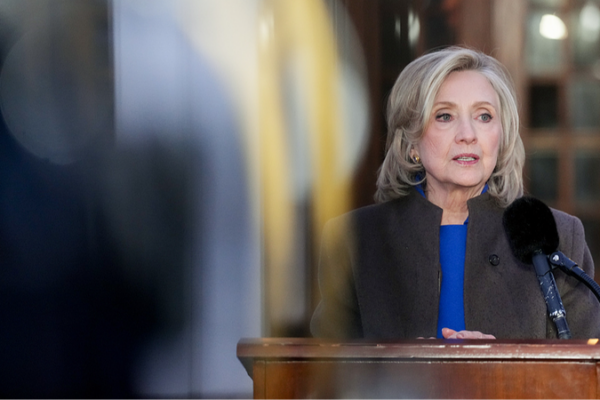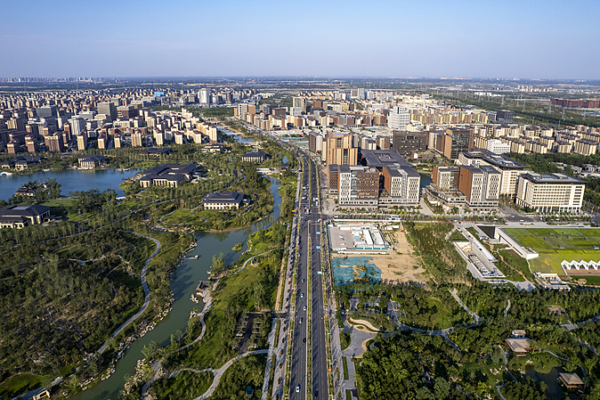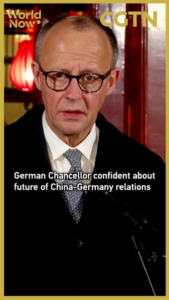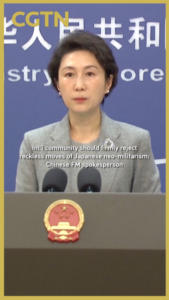
ASML Unveils Next-Gen EUV Tools to Power AI Chip Production
ASML’s next-gen High-NA EUV tools are now ready for mass production, promising to revolutionize AI chip manufacturing with enhanced efficiency and lower costs.

Ukraine-U.S. Talks Conclude Without Breakthrough; Trilateral Meeting Set for March
Recent Ukraine-U.S. talks in Geneva ended without progress, with trilateral negotiations set for March in Abu Dhabi to advance peace efforts amid ongoing geopolitical tensions.

Iran-U.S. Nuclear Talks Show ‘Significant Progress’ in Geneva
Iran and the U.S. report ‘significant progress’ in Geneva nuclear talks, with technical discussions set for Vienna next week. Tensions remain over uranium enrichment and missile development.

Brazil Floods: Death Toll Rises to 59 as Minas Gerais Battles Heavy Rains
Floods and landslides in Brazil’s Minas Gerais state claim 59 lives, disrupt infrastructure, and prompt urgent rescue operations amid ongoing heavy rains.

DPRK Unveils Five-Year Plan at WPK Congress, Bolsters Defense Strategy
DPRK leader Kim Jong Un announces a new five-year plan focusing on military modernization, economic reforms, and a firm stance on U.S. and South Korea relations during the WPK Congress.

German Chancellor Merz Champions Sino-German Tech Collaboration During China Visit
German Chancellor Merz concludes China visit with focus on tech partnerships in autonomous vehicles and robotics, highlighting growing economic ties between the two nations.

Hillary Clinton Denies Knowledge of Epstein Crimes in House Testimony
Hillary Clinton testifies before Congress, denying any knowledge of Jeffrey Epstein’s criminal activities amid political tensions over the investigation.

China’s 2026 ‘Two Sessions’ Press Center Opens in Beijing
Beijing prepares for China’s annual ‘Two Sessions’ as the press center opens, with over 3,000 journalists registered to cover key policy announcements starting March 4.

Magnitude 5.0 Earthquake Shakes Lima, Peru
A magnitude-5.0 earthquake struck Lima, Peru on February 26, 2026, causing brief evacuations and minor injuries. Authorities continue monitoring for aftershocks.

High-Profile Americans Resign Amid Epstein Ties in 2026 Accountability Push
High-profile resignations rock US and European circles as Epstein-linked figures face scrutiny in 2026 accountability efforts, contrasting transatlantic investigative approaches.

Hillary Clinton Testifies in Epstein Probe Amid DOJ Scrutiny
Hillary Clinton denies knowledge of Jeffrey Epstein’s crimes during congressional testimony, as the DOJ investigates withheld files linked to former President Trump.

IOM Reports Nearly 8,000 Migrant Deaths in 2025 Amid Shrinking Safe Routes
IOM reports 7,667 migrant deaths in 2025, warns of shrinking safe routes and underreported tolls amid global border crackdowns.

Zambia Rejects Key Terms in $1 Billion US Health Aid Deal
Zambia delays signing $1 billion US health aid agreement, citing provisions conflicting with national interests. Negotiations continue as concerns over data and mining access arise.

Beijing Balances Quiet Rights and Public Recreation in Urban Dispute
Beijing residents clash over noise pollution vs public recreation rights, testing urban coexistence solutions in fast-growing Asian cities.

German Court Halts AfD’s ‘Extremist’ Label, Sparks Political Debate
A German court suspends the AfD’s ‘extremist’ designation, boosting the far-right party ahead of key state elections amid domestic and international political tensions.

African Aviation Struggles to Take Off Despite 2026 Growth Projections
Africa’s aviation sector faces turbulent growth in 2026, with high costs and fragmented policies hindering connectivity despite rising demand and expansion opportunities.

U.S. Accused of Leveraging Tech Dominance to Seize $30B in Crypto Assets
A Chinese report alleges the U.S. used tech dominance to seize $30B in global crypto assets, citing cases like Chen Zhi and Zhao Changpeng to highlight systemic financial exploitation.
China-Germany Economic Ties Strengthen During Merz’s 2026 Visit
China and Germany deepen economic collaboration with over 10 agreements signed during Chancellor Merz’s 2026 visit, fostering bilateral trade growth.

Beijing-Tianjin-Hebei Trade Surges 25.7% in 12 Years of Coordinated Development
Beijing-Tianjin-Hebei region achieves 25.7% trade growth since 2014, driven by regional coordination and global partnerships through 2025.

Denmark Calls March Election Amid Greenland Sovereignty Standoff
Danish PM Mette Frederiksen calls snap election for March 24, 2026, as her stance on Greenland sovereignty reshapes Europe’s geopolitical landscape.













